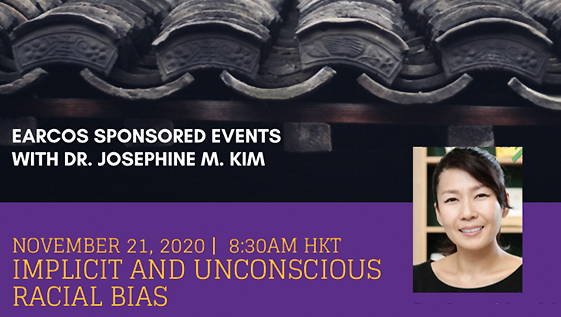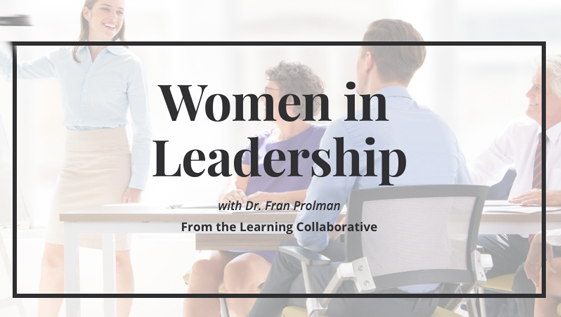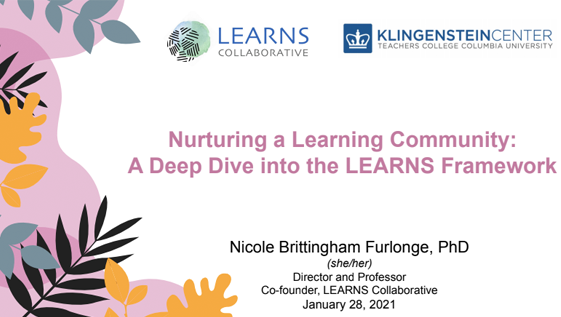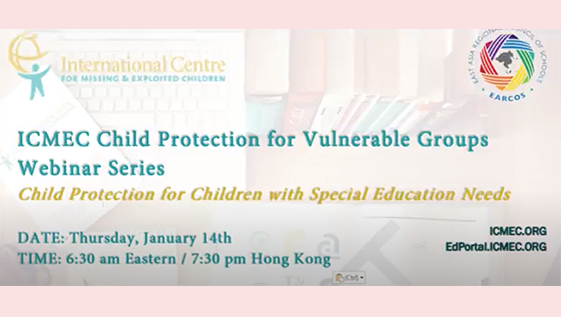Presented by: Dr. Monica Medina & Shannon Hobbs-Beckley
Are you ready to grow your expertise and take your school to the next level with literacy instruction? Join our webinar to learn about this unparalleled learning journey with our groundbreaking 2-year training program. The ILCC has a 17 year history of preparing teachers to become literacy leaders and literacy coaches in the CEESA, ECIS, and NESA regions. Now, it's coming to EARCOS in the Fall of 2024! Delivered in a cohort model sustained over 2 school years, this unique and immersive program combines dynamic workshop sessions with hands-on, in-class practice to hone your skills and unleash your full potential. The results will be personal growth and development that you can apply to develop school-wide systems and structures for student success in grades Kindergarten-12th grade. Don't settle for ordinary. Elevate your skills, ignite your creativity, and chart a course towards success with our exclusive program. The journey starts here!
How to Intentionally Integrate Students' Languages in Any Class
Presented by: Tan Huynh
Students' heritage languages are one of the most valuable assets that enhance learning, especially for multilingual learners (MLs). Fortunately, this does not mean teachers have to know students' languages for intentional integration. Teachers who are monolingual can also create authentic opportunities for students to tap into their heritage languages while learning. After participating in this session, teachers from K-12 will leave with a practical, easy-to-implement framework to make every learning experience a multilingual one.
Measuring the Experience of Families in Your School
Presented by: David Willows & Suzette Parlevliet
Most schools survey their parents from time to time to check on how things are going. Sadly, though, this feedback will often sit in unread reports and never lead to positive change and growth. In this webinar, David Willows and Suzette Parlevliet will help us to reflect on the journey that families are making through our school, offering some key insights into how to measure the felt experience of families at each stage of this journey in simple, coherent, and transformative ways.
Professionally Networking to Enrich Conference Learning
Presented by Michael Iannini
This is a 30-minute interactive webinar to prepare you for EARCOS 53rd Annual Leadership Conference 2023. The purpose of this webinar is to:
1. Introduce networking strategies to help you make the most of the upcoming conference,
2. Demonstrate for you how to establish a professional growth objective for the conference, and
3. Give you some navigation instructions for the conference app, Whova.
Creating a Sense of Belonging Through Instructional Coaching
Presented by Kim Cofino
Featuring stories & evidence from schools around the world, this session demonstrates that properly-implemented instructional coaching does much more than “just” improve student learning; it creates a culture of growth and belonging which can lead to greater teacher satisfaction and retention. By demonstrating a school’s commitment to personalizing professional learning, coaching empowers all learners to flourish and develops humanizing organizations. You’ll leave this session with the 3 key criteria needed to build a successful and sustainable instructional coaching program, along with specific pitfalls to avoid along the way.
Anti-Human Trafficking in Schools: What we can do to take action
Presented by Veronica McDaniel
The goal of the webinar is for educators and students to leave with a sense of how pervasive human trafficking is and what we can be doing to prevent it through empowering students to take action in various ways through community organizing.
Chika's Test for divisibility by 7, patterning and coding
Presented by Ron Lancaster
In 2019, Chika Olifi, a student at the Westminster School in London, made a discovery on his own of a remarkable test for divisibility by 7. In this session we will explore Chika's test, proofs of it and strange patterns related to his test that can be uncovered with the help of coding. We will examine divisibility tests for other prime numbers that when viewed together create patterns that are surprising and not easy to explain. Join Ron Lancaster to learn more about why divisibility tests should still be taught in 2023.
Implementing High-Quality Dual Language Bilingual Programs in International Schools
Presented by: Dr Ying Chu & Dr Huali Xiong
This webinar series was created by Dr. Ying Chu (Chinese immersion PLC coordinator and coach at Singapore American School) and Ms. Huali Xiong (Director of the Chinese-English Bilingual Programme at Canadian International School, Singapore). It is based on Dr. Chu’s doctoral dissertation research on implementing high-quality DLI/bilingual programs in the international school context and both leaders’ decades of successful and promising practices gained in the field of DLI/bilingual education.
The Importance of School Climate but the Risks in Addressing It
Presented by: John Littleford
Most heads know that below the surface of an apparently happy parent body or faculty lurks the potential for discontent at some level. Underlying issues of disgruntlement exist in every school. An incident can gain traction among a stakeholder group and lead to a firestorm even if only a small group, but one with a powerful voice, is leading and encouraging it.
EARCOS 2022 Governance Sessions
Presented by: Marc T. Frankel, Ph.D. & Abigail DeLessio
First Session: Orientation and Refresher on Governance
Effective governance and leadership have always been the key to school success. This axiom has never been truer than now as we navigate a seemingly endless array of daunting challenges: the COVID-19 pandemic, a new cold war, a hot war in Europe, climate change, and global supply chain disruptions. As schools find their footing amid multiple evolving crises, they must also address long-term systemic changes that will impact enrollment, brand loyalty, school identity, and student wellness and social and emotional well-being. Now, more than ever, exceptional leadership and governance are critical to a school’s long-term viability.
When the Chair/Head Partnership is Failing, Then What?
Presented by John Littleford
What are the typical causes of a breakdown in the chair/head relationship? This session will explore ways to repair the relationship, if possible, to renew the partnership if feasible and options if nothing works and the partnership fails. Does the chair always stay and the head leaves? How is a new chair chosen? Does the former chair stay on the Board? And what if the head has to leave? The board chair/head partnership is one of the essential elements of a healthy board BUT these relationships do break down which also leads to the recommendation that chairs, especially when the one in place is working well, stay longer.
The Substantial Risks and Opportunities of Head Transition
Presented by John Littleford
This session will explore why the excitement of the search process often results in little attention being paid to the transition of the new head and how to manage that transition seamlessly and successfully. The transition period is a minimum of 3 years and up to 5 years. There are 10 core steps that heads and boards need to honor to help ensure that the time, money and effort put into the head of school search unfolds as it should, enabling a head to leave a legacy and not a power vacuum.
Inspire Citizens Eco-Media
Media Literacy for Engaged Global Citizenship to (Re)Connect with Nature, Others & Ourselves
How Middle Leaders can support colleagues affected by transition with Michael Iannini & Jane Barron
How all leaders, but middle leaders in particular, use their time between now and the close of the term, will greatly impact their colleagues wellbeing when they break for the Summer months. This break will be incredibly important for reinvigorating you and your colleagues’ spirit and passion for teaching when school resumes. Two and a half years on, though, the pandemic is still a great source of anxiety and will impact these holidays in a variety of ways. Our colleagues may not get the holiday they are hoping for, but middle leaders can still ensure they get some peace of mind to help them return in the new term feeling reinvigorated.
The Landscape Model of Learning: Designing Student-Centered Experiences for Cognitive and Cultural Inclusion with Jennifer Klein
Most schools still function with age-level groupings and an industrial-era mentality about students, where we presume a common starting and ending point for all. While such systems may have helped us standardize education and make it more efficient, they make some students feel perpetually behind, hold back our most talented, and ignore the "middle." Rather than shooting for access for all students, authors Jennifer D. Klein and Kapono Ciotti have developed The Landscape Framework to help teachers and leaders ensure the highest levels of success possible for all students.
How to end bullying and cyberbullying at your school with Nicholas Carlisle
Student bullying and harassment are some of the most painful challenges facing educators today. As schools went online in response to the pandemic, cyberbullying has increased and student civility has plummeted. Yet most teachers and school leaders have never been trained in an effective system for how to respond.
In this ninety minute session, Nicholas Carlisle will share with you the four steps that visionary schools are taking to become bully-free. You will learn how to initiate culture change on your campus and how to activate student empathy to resolve the incidents of bullying that still occur.
Curriculum Review: A Proven Pathway to Success (Part 1)
Every school engages in curriculum review on a regular basis—for accreditation, for program development and evaluation and because curriculum is the life blood of all we do. In this three-part series, Andrew Miller, Director of Teaching and Learning and Gynelle Gaskell, Mathematics Instructional Coach both at Singapore American School, will share with us many of the tried and true methods and processes SAS embraces in their approach to curriculum review. The process helps ensure that the curriculum is not only vertically and horizontally aligned, but dynamic, relevant and reflective of the rapid changes in subject matter, teaching and learning today.
Curriculum Review: A Proven Pathway to Success (Part 2)
Every school engages in curriculum review on a regular basis—for accreditation, for program development and evaluation and because curriculum is the life blood of all we do. In this three-part series, Andrew Miller, Director of Teaching and Learning and Gynelle Gaskell, Mathematics Instructional Coach both at Singapore American School, will share with us many of the tried and true methods and processes SAS embraces in their approach to curriculum review. The process helps ensure that the curriculum is not only vertically and horizontally aligned, but dynamic, relevant and reflective of the rapid changes in subject matter, teaching and learning today.
Curriculum Review: A Proven Pathway to Success (Part 3)
Every school engages in curriculum review on a regular basis—for accreditation, for program development and evaluation and because curriculum is the life blood of all we do. In this three-part series, Andrew Miller, Director of Teaching and Learning and Gynelle Gaskell, Mathematics Instructional Coach both at Singapore American School, will share with us many of the tried and true methods and processes SAS embraces in their approach to curriculum review. The process helps ensure that the curriculum is not only vertically and horizontally aligned, but dynamic, relevant and reflective of the rapid changes in subject matter, teaching and learning today.
Essential Conditions for Building a Culture of Data Use with Shabbi Luthra & Piotr Olczak
Schools gather limitless information about their students and their skills, needs, and their growth/ progress. They hope this data can be used by their teachers to design interventions and learning engagements for their students. In order for teachers to use the data, it requires that school leaders build a culture of data use. This session will share the essential conditions for schools to build and develop a data-using and data-informed culture.
Session 1: For Interdisciplinary Learning, Focus on Real-World Contexts with Suzie Boss
When students tackle challenges that matter to them, engagement increases. To ensure that their initial engagement leads to deep learning, educators can look for interdisciplinary opportunities embedded in real-world projects. Such experiences will help students make connections that cross content silos as they apply their understanding to arrive at more creative solutions. Working on interdisciplinary projects mirrors the world beyond the classroom, where complex problems and emerging careers require collaboration by experts. This session will highlight compelling contexts for authentic problem solving from K-12, including sustainability, invention, engaged citizenship (both local and global), and community service. Case studies and planning strategies will help participants design projects that enable students to deepen disciplinary understanding while also making connections across content areas.
Session 2: Interdisciplinary Projects: Leveraging Opportunities, Overcoming Challenges with Suzie Boss
Planning for interdisciplinary projects challenges educators to reimagine the curriculum outside traditional content silos. This session will focus on practical strategies for collaborative project design, alignment to learning goals, and assessment planning. Examples will show how educators can leverage community partnerships and engage with content experts to help students extend their learning beyond the classroom. Resources will help participants anticipate next steps to expand interdisciplinary learning experiences for their students.
Back to School After COVID-19: Navigating Social Emotional Learning with Chris Joffe, Sarah Mathew & Kerry Wrenick
As we transition back to school—online, in-person, or hybrid— leaders in education must find strategies to inspire hope and leverage positive change to confront the adversities we have faced. Many families and their children continue to experience high levels of anxiety, depression, trauma, and fear.
Resource
Download Facts Sheet
Knowledge & Network:
Universal Design for Learning (UDL) with Katie Novak
SESSION 1 - The Process of Unlearning
Sometimes we do things in a certain way simply out of habit. But breaking habits is necessary to advance our teaching practices into an ever-evolving educational landscape. In order to evolve so that we can support every student, we first need to unlearn. The process of unlearning can be uncomfortable, like getting a new phone with a new platform, or having to retrain yourself not to touch your face but this discomfort is necessary for growth. We must change our mindsets to change the larger system. Through the Process of Unlearning, we will explore how implementing Universal Design for Learning (UDL) requires us to unlearn many outdated beliefs, assumptions, and teaching practices and provide you with the tools to take your practice into the 21st Century.
Universal Design for Learning (UDL) with Katie Novak
SESSION 2 - One-Size-Fits-All Fits No One
For centuries, schools worked well for those students who arrived ready to learn. When students struggled, they were often labeled as disabled - yet research is now clear that it's not students, but our systems, that are disabled. Inclusive practices challenge education systems of the past by embracing student variability and eliminating barriers to learning. In this session, we will explore Universal Design for Learning (UDL), a framework for inclusive education that empowers all students to become expert learners who are purposeful & motivated, resourceful & knowledgeable, and strategic & goal-directed, regardless of their variability. In this session, participants will have numerous options and choices to dive into the why, the what, and most importantly, the how of UDL, so they can learn to support and challenge all learners academically, behaviorally, and social-emotionally.
Overview of Child Protection in International Schools (Session 1)
In this webinar, we will discuss the Overview of Child Protection Responsibilities for a School, which outlines all the areas of focus needed for a school to consider when addressing Child Protection. This will include everything from physical security to policies to personnel and reporting structures. Participants will learn about each of the 12 elements and how they are interconnected. Participants will receive handouts to guide them in using this information at their school.
Crafting a Child Protection Policy (Session 2)
In this webinar, participants will learn about the elements and structure of a robust Child Protection policy. They will learn best practices for creating a CP Policy that fits within the school culture, meets standards and requirements, and engages members of the school community. Participants will receive a guide for creating their own school Child Protection policy and they will engage in group work discuss case studies.
Child Protection Training for all members of the School Community (Session 3)
In this webinar, participants will learn about the Child Protection training strategies and requirements to meet the needs of all school community members. From leaders and teachers to support staff, parents, and students, participants will take a deep dive into learner needs, training content, and certification. The webinar will cover Level 1,2,3 certification as well as training designed for specific stakeholder groups.
Top 10 Lessons Learned from Remote and Hybrid Teaching with Danielle Sullivan
2020-21 was a challenging year for everyone, especially those who work in education. However, it also brought many silver linings. In this session, we will examine the top 10 lessons learned from educators in the 2020–2021 school year that will help shape education for the future. You will learn what works, why it worked, and walk away with inspiration to apply these best practices to your schools and classrooms.
Faculty Compensation and the Rising Expectations of Teachers for a Better Work/Life Balance with John Littleford
How do schools with limited resources in many cases meet the legitimate needs of teachers and staff? Schools need and want to reward them for their years in the pandemic trenches, provide appropriate respites through creative scheduling, and yet keep schools financially sustainable and mission aligned. This session will address these important topics.
MARIO Framework with Philip Bowman & Graeme Scott (Part 1)
The MARIO Framework is now being used to improve learning outcomes in over 15 different countries around the world. We are educators that believe there is a better way to learn. To this end, we have built first-class professional learning courses and software that empower and connect special education students, teachers, parents, and school leaders to a degree simply not possible before. We do this by helping educators create evidence-based one-to-one learning conversations and personalized learning experiences that privilege student voice.
MARIO Framework with Philip Bowman & Graeme Scott (Part 2)
The MARIO Framework is now being used to improve learning outcomes in over 15 different countries around the world. We are educators that believe there is a better way to learn. To this end, we have built first-class professional learning courses and software that empower and connect special education students, teachers, parents, and school leaders to a degree simply not possible before. We do this by helping educators create evidence-based one-to-one learning conversations and personalized learning experiences that privilege student voice.
EARCOS 2021 Governance Session 1
Part I will provide a comprehensive tour through the key components of best practice in governance – an essential orientation for new trustees and a timely refresher for veteran board members! Topics covered will include:
The Roles and Responsibilities of the Board;
For Whom and How Boards Govern;
Sustaining Effective Governance;
The Board’s Role in Strategy: Planning to Ensure Long-term Sustainability; and
Leadership Through Partnership: The Board – Head of School Relationship.
EARCOS 2021 Governance Session 2
Part II is for all board members and their heads of school to explore emergent challenges to school governance and leadership in 2021-22. As an exercise in applying good practice to real problems and opportunities, our topics will include:
- Energizing the board-head partnership;
- Understanding and adapting to demographic change;
- Adapting to a post-COVID world;
- Maximizing school success by avoiding the pitfalls of boards; and
- Re-calibrating what it means to be a successful school in a new era.
Designing Learning: Building Follow/Tinker/Make/Share Projects
This workshop will focus on the projects generated during the Tinker and Make phases, giving you an opportunity to share the projects (either formal or informal, school or community based, learner directed or staff-development directed) that you’ve developed for your own classes or institutions according to the Follow/Tinker/Make/Share (FTMS) framework (around 60 minutes). This second workshop is designed to provide every participant with a project that makes sense structurally, disciplinarily, and culturally within the contexts of your own classes and institutions.
Making Learning: The Follow, Tinker, Make, Share Framework
Neuroscience points to the benefits of learning-by-making (constructionism), but teachers and school leaders sometimes struggle with incorporating this method in their learning environments. Most of us simply aren’t trained in these kinds of learning approaches. Handily, the ‘Follow/Tinker/Make/Share’ framework (FTMS) is designed to ease this process, giving you a practical approach for successfully incorporating project-based learning, service learning, or maker learning in your school — regardless of whether you’re meeting in-person or remotely. And you can use this framework regardless of the discipline you teach or the demographic of your learners — you can even use it for professional development.
Managing Self Through Crisis
These are unprecedented times. As we move deeper into the “chronic” and hopefully the “recovery” phase of the global pandemic, there is even more importance on how leaders can stay strong and resilient through tough times. While there are many ideas and suggestions available, there is a good social science that can be used for guidance for what helps leaders do their best during prolonged crises. In this presentation, we will discuss researched, progressive practices for educational leaders to draw upon amid uncertainty that promote their own welfare and the success of the schools they lead.
Embracing and Driving Powerful Positive Change in your Organization
Embracing Change is about how to not only get your people to embrace change but actually lead and drive that change. In this talk, I will share why change is so difficult for organizations to create and why change that does occur so frequently becomes "Flavor of the Month".
School Reputation–How to Endure and Build in Unprecedented Times!
Almost universally, international schools are moving into marketing and identity building in a more professional sense. However, schools less understand or practice marketing or identity as a part of a definitive and whole of school wide approach to reputation. All too often we see in international schools that deliberate management focus on reputation only comes formally onto the radar when a crisis occurs (like Covid)! What could be more important in these times to a school than a comprehensive and planned approach to building a compelling future reputation?
The Language of Psychological Safety Webinar
Psychological Safety is increasingly talked about and researched the subject, both overall and in international education. It appears to underpin issues of Diversity/Equity/Inclusion and is highly predictive of team effectiveness. Broadly, it is the shared belief held by members of a team that the team is safe for interpersonal risk-taking.
Women in Leadership
Leadership Series #1 - Watch the video click here
Reminder: Password will be given to those registered participants only.
Nurturing an Inclusive Learning Community: A Deep Dive into the LEARNS Framework
As educator leaders, we are carrying so much as we lead in the context of pandemic and amidst amplified calls to create inclusive schools where all students thrive. In this session, we will explore how to cultivate and actively design a school that LEARNS.
Child Protection for Children with Special Education Needs
This panel will focus on the needs of educators working with differently abled children, to including physical, intellectual, learning and neuro divergent abilities. Mitigation of risks related intimate care, communication challenges, social boundaries, and missing children will be addressed.

Implicit and Unconscious Racial Bias
Every breathing individual harbours unconscious biases that prevent us from making equitable and inclusive decisions. Our brains heavily rely on past cultural and socialisation experiences by default to provide data that fills in the blanks between the things we see and things we don’t see. That’s why implicit racial bias has been called “the new diversity paradigm,” recognising the significant role it plays in day-to-day functioning. It permeates all aspects of an educator’s life, from the ways in which we teach and discipline to the ways we evaluate and set expectations. This session will define implicit bias, demonstrate how unconscious bias works, and foster dialogue on how we can work to migrate it.
Financial Management for International Schools
Having inherited deficit budgets in two schools, Dr. Gregory Hedger was successful in bringing them back to healthy reserves. He also established a positive cash flow in a new school start up within two years. Working in partnership with Cameron Janzen at three schools, the pair have identified procedures to ensure a level of success with financial management in international schools, with a particular focus on smaller schools.
Well Intentioned but Precarious New Board Directions with John Littleford
Some boards want more engagement in operations than ever before. These requests/directions are motivated generally by board members who want to help heads and school leadership during the COVID-19 crisis, but it also reflects a disturbing trend that is a challenge to good governance and the principles of best practice.
While heads and chairs may try to make some reasonable accommodations for board members wanting a greater "voice," it also potentially opens a Pandora's box of risks. What are some recent examples of this? How do you spot the trend early and nip it in the bud? What do boards and heads do about this if they are already struggling?
Recruiting In A Changing World: The Future of International School Recruitment
For this webinar, exclusive to EARCOS schools, we have invited three leading recruitment organisations (ISS/Schrole, Search Associates, and Teacher Horizons) to share their analysis of how international school recruitment is changing —and rapidly so. Our panel will discuss a range of challenges facing schools and teachers and how we can prepare for and manage them. Topics will include the impact of Covid-19, technology and online solutions, diversity, how HR depts can respond more effectively to today’s candidate, the importance of building your brand as a school and the longer-term outlook for recruitment.
Supporting Mental Wellness in Our Schools: A Webinar for EARCOS School Leaders
The Truman Group is a highly recognized global consortium of practicing clinical psychologists with significant experience with expatriate individuals and families. Dr. Sean Truman, President of the Truman Group, grew up overseas and attended an international school in Africa. Recognizing the increasingly widespread effects of the Covid-19 pandemic on our international schools community, Dr. Truman’s webinar will offer an overview of the alarming increase in mental health challenges that has arisen over the past 9 months. Dr. Truman will share information about the developing crisis in mental health, with a special focus on what school leaders need to recognize and do to support wellbeing across their schools. He will also introduce an innovative project between EARCOS and the Truman Group designed to support the emotional wellbeing of school counselors.
Supporting Mental Wellness: A Webinar for EARCOS School Counselors
The Truman Group is a highly recognized global consortium of practicing clinical psychologists who have significant experience with expatriate individuals and families. Dr. Sean Truman, President of the Truman Group, grew up overseas and attended an international school in Africa. Recognizing the increasingly widespread social and emotional effects of the Covid-19 pandemic on our international schools community, Dr. Truman’s webinar will offer an overview of the alarming increase in mental health challenges our school counselors face today. Dr. Truman shared the information about the developing crisis in mental health, particularly as it impacts international school students, parents, leaders and faculty, with a special focus on the increasingly challenging role played by school counselors. Importantly, he shared theinformation on an innovative new project being launched by EARCOS and the Truman Group designed to support the emotional wellbeing of school counselors.
What's Different for School Year 2020-21?
This session will look at a variety of specific school situations today (at the start of 2020-21) compared with where they were in June (the end of 2019-20). Each panelist highlighted one or two particular actions they have taken to make this new school year feel different from last school year. Many of our colleagues have highlighted a shared concern that as the COVID-19 crisis has continued to develop there is a danger that school will transition from June to August/September as if there had been no break. The panelists will address this and a variety of other critical topics.
Panelist: Patrick Hurworth (International School Beijing), Jim Hardin (American School in Japan), Catriona Moran (Saigon South International School, Steve Dare (Hong Kong Academy)
Supporting Community Well-being for School Year 2020-21
Title: Supporting Community Well-being for School Year 2020-21
This session will look at the panelist’s schools’ approach to community wellness/well-being for the new school year. Each Head will highlight one or two specific plans/actions they have taken to help the community, or a segment of the community, (students, parents, faculty and/or staff) to cope well with the realities of a new school year. Many of our colleagues have highlighted the challenges in terms of the emotional and general wellness, or lack thereof, during the earlier phase of the pandemic. Lessons learned and actions taken can help all of our EARCOS schools focus on a healthy 2020-21 school year.
Panelists: Tarek Razik (Jakarta Intercultural School), Craig Coutts (Yokohama International School), Jane McGee (UNIS-Hanoi), Andy Davies, (International School Bangkok), Ben Ploeger, (Kaohsiung American School)
Click here to watch the recording
Note: Passcode: t9T5XEE!
Leading in a Time of Crisis
In this pandemic, school leaders have been inundated with dilemmas, questions, decisions and endless amounts of advice. In their presentation, Drs. Evans and Thompson will discuss the five essential approaches leaders should use to help their communities remain strong in the face of fear and uncertainty.
Michael Thompson and Rob Evans are both psychologists, authors, and consultants to schools in the U.S. and internationally. They have each worked in hundreds of schools, including many schools facing serious crises of all kinds. They have each written many articles. Michael has published nine books, Rob three. They are currently at work on a book for schools about dealing with difficult parents. Both are highly respected voices across the world of international schools.
EARCOS Chief Operationg Officers/Business Managers
The session promises to offer a powerful opportunity to sort through the challenges and to share solutions as our schools continue to move positively through this time of uncertainty. Join three Chief Operating Officers from the region as they discuss their challenges and the steps they are taking to help manage the financial resources of their schools.
Download Presentation Slides
Dwight School Seoul webinar
EARCOS Dwight School Seoul webinar from closure to e-Learning a journey with Dwight School Seoul and the preparation of the return to School. The differences and challenges of reopening schools in times of COVID-19.

Back to school: Managing the risks of campus re-opening
School campuses, which have now been empty for months, are inching closer to reopening, presenting another set of emerging challenges. Schools need to properly plan for and manage new risks when students, faculty and staff return to campus. Health and safety concerns top the list, but the risks extend beyond those, and missteps can quickly spiral into incidents that threaten both operations and reputation.
You may watch a recording of the webinar at your convenience here: https://direc.to/dACL
A copy of the presentation slides may be downloaded here: https://direc.to/dACs

How GEMS International School supports distance learning
Don’t miss @fireflyteam upcoming webinar: Hear from Vice-President of International GEMS Penang on their challenges & successes of distance learning for younger learners during #schoolclosures. They share techniques for improving parental & student engagement.



